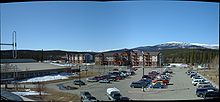
Simon Fraser University (SFU) is a public research university in British Columbia, Canada, with three campuses, all in Greater Vancouver: Burnaby, Surrey, and Vancouver. The 170-hectare (420-acre) main Burnaby campus on Burnaby Mountain, located 15 kilometres (9.3 mi) from downtown Vancouver, was established in 1965 and comprises more than 30,000 students and 160,000 alumni. The university was created in an effort to expand higher education across Canada.

The University of Manitoba is a Canadian public research university in the province of Manitoba. Founded in 1877, it is the first university of western Canada.
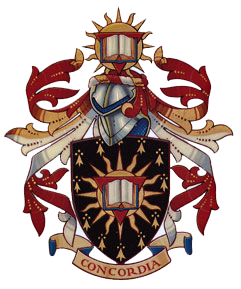
Concordia University is an English-language public research university located in Montreal, Quebec, Canada. Founded in 1974 following the merger of Loyola College and Sir George Williams University, Concordia is one of the three universities in Quebec where English is the primary language of instruction. As of the 2022–23 academic year, there were 49,898 students enrolled in credit and non-credit courses at Concordia, making the university among the largest in Canada by enrolment. The university has two campuses, set approximately 7 kilometres apart: Sir George Williams Campus is the main campus, located in the Quartier Concordia neighbourhood of Downtown Montreal in the borough of Ville Marie; and Loyola Campus in the residential district of Notre-Dame-de-Grâce. With four faculties, a school of graduate studies and numerous colleges, centres and institutes, Concordia offers over 400 undergraduate and over 120 graduate programs and courses.

The University of Waterloo is a public research university with a main campus in Waterloo, Ontario, Canada. The main campus is on 404 hectares of land adjacent to "Uptown" Waterloo and Waterloo Park. The university also operates three satellite campuses and four affiliated university colleges. The university offers academic programs administered by six faculties and thirteen faculty-based schools. Waterloo operates the largest post-secondary co-operative education program in the world, with over 20,000 undergraduate students enrolled in the university's co-op program. Waterloo is a member of the U15, a group of research-intensive universities in Canada.
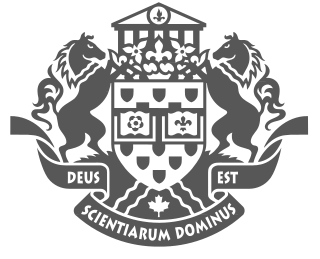
The University of Ottawa, often referred to as uOttawa or U of O, is a bilingual public research university in Ottawa, Ontario, Canada. The main campus is located on 42.5 hectares directly to the northeast of Downtown Ottawa across the Rideau Canal in the Sandy Hill neighbourhood.

Carleton University is an English-language public research university in Ottawa, Ontario, Canada. Founded in 1942 as Carleton College, the institution originally operated as a private, non-denominational evening college to serve returning World War II veterans. Carleton was chartered as a university by the provincial government in 1952 through The Carleton University Act, which was then amended in 1957, giving the institution its current name. The university is named after the now-dissolved Carleton County, which included the city of Ottawa at the time the university was founded.

Charles Darwin University (CDU) is an Australian public university with a main campus in Darwin and eight satellite campuses in some metropolitan and regional areas. It was established in 2003 after the merger of Northern Territory University, the Menzies School of Health Research, and Centralian College.

Ontario College of Art & Design University, commonly known as OCAD University or OCAD, is a public art university located in Toronto, Ontario, Canada. The university's main campus is spread throughout several buildings and facilities within downtown Toronto. The university is a co-educational institution which operates three academic faculties, the Faculty of Art, the Faculty of Arts and Science, and the Faculty of Design. The university also provides continuing education services through its School of Continuing Studies.
Piers McDonald, OC is a Yukon politician and businessman. Born in Kingston, Ontario, McDonald, originally a miner by profession, is a long-time MLA, Cabinet minister, and the fifth premier of Yukon. He was leader of the Yukon New Democratic Party from 1995 to 2000.
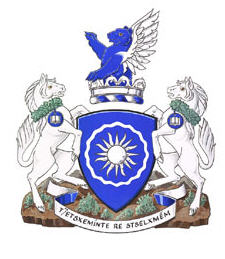
Thompson Rivers University is a public teaching and research university offering undergraduate and graduate degrees and vocational training. Its main campus is in Kamloops, British Columbia, Canada, and its name comes from the two rivers which converge in Kamloops, the North Thompson and South Thompson. The university has a satellite campus in Williams Lake, BC and a distance education division called TRU-Open Learning. It also has several international partnerships through its TRU World division. TRU is accredited by the Northwest Commission on Colleges and Universities (NWCCU) at the associate, baccalaureate and master's degree levels.

The University of the Fraser Valley (UFV), formerly known as University College of the Fraser Valley and Fraser Valley College, is a Canadian public university with campuses in Abbotsford, Chilliwack, Mission and Hope, British Columbia. Founded in 1974 as Fraser Valley College, it was a response to the need for expanded vocational training in the communities of the Fraser Valley. In 1988, it became a university college, with degree-granting status. As the University College of the Fraser Valley, it grew rapidly, becoming one of the largest university colleges in Canada.

The Namibia University of Science and Technology (NUST), formerly known as Polytechnic of Namibia, is a public university located in the city of Windhoek, Namibia. Andrew Niikondo is its acting vice-chancellor. NUST was headed by the founding vice-chancellor Tjama Tjivikua until March 2019. After two acting appointments, Erold Naomab was appointed vice-chancellor in January 2021. The largely ceremonial role of chancellor of the university is held by Peter Katjavivi.

Higher education in Manitoba includes institutions and systems of higher or advanced education in the province of Manitoba.

Higher education in Alberta refers to the post secondary education system for the province of Alberta. The Ministry of Advanced Education in Alberta oversees educational delivery through universities, publicly funded colleges, technical institutions, and private colleges. These institutions offer a variety of academic and vocational pursuits. Students have access to post-secondary options through most regions of Alberta, and a developed articulation system allows for increased student mobility.

Higher education in Yukon is shaped by the territory's small population in a relatively large geographic area. The history of higher education went hand in hand with the establishment of a representative territorial government in 1979. Yukon University is the only higher education institution in Yukon. Yukon University issues certificate, diploma, and degree programs. In December, 2019, the Yukon Legislature passed a bill that would transform Yukon College into Yukon University.
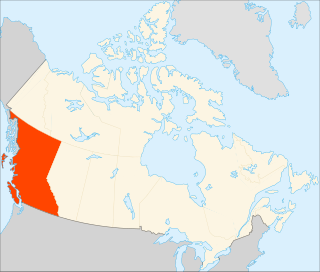
Higher education in British Columbia is delivered by 25 publicly funded institutions that are composed of eleven universities, eleven colleges, and three institutes. This is in addition to three private universities, five private colleges, and six theological colleges. There are also an extensive number of private career institutes and colleges. Over 297,000 students were enrolled in post-secondary institutions in British Columbia in the 2019-2020 academic year.

Toronto Metropolitan University is a public research university located in Toronto, Ontario, Canada. The university's core campus is situated within the Garden District, although it also operates facilities elsewhere in Toronto. The university operates seven academic divisions/faculties, the Faculty of Arts, the Faculty of Community Services, the Faculty of Engineering and Architectural Science, the Faculty of Science, The Creative School, the Lincoln Alexander School of Law, and the Ted Rogers School of Management. Many of these faculties are further organized into smaller departments and schools. The university also provides continuing education services through the G. Raymond Chang School of Continuing Education.
Frederick Howard Collins October 1, 1897 – August 24, 1988) was the commissioner of Yukon from 1955 to 1962. He succeeded Wilfred George Brown and was followed in the position by George Robertson Cameron. The Yukon territorial government today resembles those in the Canadian provinces, i.e., parliamentary with a Legislative Assembly and a Premier as head of government. But historically, and during the term of Collins, the federally-appointed Commissioner was the empowered chief executive of the territory.

University of Rwanda is a public collegiate, multi campus university based in Kigali, Rwanda. Formed in 2013 through the merger of previously independent education institutions, the University of Rwanda is the largest education institution in Rwanda. The University of Rwanda is ranked number one in the country by the Higher Education Council, an organ established by the Government of Rwanda.
The Université de l’Ontario français is a French-language public university in Toronto, Ontario, Canada. The university campus is situated in the East Bayfront neighbourhood of downtown Toronto, near the Toronto waterfront.

